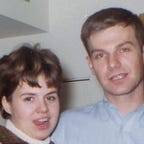A Kind of Sadness
Hey Jim, got a minute? Jim, can I ask you something? Jim?
But I’m getting ahead of myself.
By now, you probably know that Jim Bouton passed away. Yes, that Jim, the former Yankee pitcher. The guy who wrote the celebrated book, “Ball Four,” which took readers inside the clubhouse and changed the way journalists and fans view the sports world.
I loved it but a lot of people didn’t. “Ball Four” was Bouton’s behind-the-scenes, spill-all-the-beans account of what really goes on in the lives of our storied athletes. As the New York Times reported, “He described how players routinely cheated on their wives, devised plans to peek under women’s skirts by drilling holes in the dugout or spy on them through hotel windows. He told how they spoke in casual vulgarities, drank to excess and swallowed amphetamines as if they were M&Ms.” No one was spared. “Mickey Mantle played when he was nursing a hangover. Carl Yastrzemski was a loafer. Whitey Ford scuffed or muddied the baseball to make his pitches more effective, and his catcher Elston Howard helped him do it.”
Many people were angry when the book came out, especially other players like Cincinnati star Pete Rose who hollared, “F — -k you, Shakespeare!” when he spotted Bouton across the field. Comissioner Bowie Kuhn hauled Bouton into his office and demanded that he retract everything he had written. Bouton refused. But he would thank them later for making “Ball Four” a best-seller, his gratitude expressed in another book, “I’m Glad You Didn’t Take It Personally.”
And it really was a success, selling around 5.5 million copies. In 2002, Sports Illustrated placed “Ball Four”at Number 3 on its list of the top sports books of all time. Baseball historian Terry Cannon hailed it as “arguably the most influential baseball book ever written and one which changed the face of sportswriting and our conception of what it means to be a professional athlete.”
Bouton explained that he “never meant to make an investigation of a subculture. I just wanted to share the nonsense.” But then things changed. “After two or three years of playing with guys like Mantle and Maris, I was no longer awed. I started to look at those guys as people and I didn’t like what I saw. They were fine as baseball heroes. As men they were not quite so successful.”
Bouton had a couple of great seasons with the Yankees, going 21–7 in 1962 and 18–13 the following year when he also won two games in the World Series. They called him “Bulldog” because his cap was always falling off when he threw.
Arm trouble prompted the Yankees to trade him, and a short time afterwards he retired. The desire to play, however, was still with him and when he was in his late 30s, he launched a comeback, playing in Mexico and the low-level minors. His fast ball was gone but he’d perfected the knuckle ball, something he began throwing when he was a kid. It was enough for the Atlanta Braves to sign him to a contract in 1978 at age thirty-nine. He went 1–3 before retiring again.
It was just before he signed with the Braves that I caught up with him. I was a correspondent for CBS News and he was a sportscaster for its affiliate WCBS in New York. We shared the same building on West 57th Street and, from time to time, would pass each other in the corridors. I doubt if he noticed me but I certainly noticed him. I’d always been a Yankee fan. They were my heroes. Yes, Mickey, Whitey and Roger — all of them. I didn’t care what they did. If they wore pinstripes, I was in awe, and that included Bouton.
But I remember thinking he wasn’t as big as I’d imagined. Not even six feet. His hair was long and there was a casual, unassuming air about him, a complete contrast to the stuffy, buttoned-up executives who also paraded those corridors. Bouton was wearing a baseball undershirt and blue jeans the day I wanted to stop him and ask a couple of questions.
“Hey Jim, you got a minute? Jim?” But I never got the words out. I was too shy, a bit intimidated. I wanted to ask about his book, how he felt about the criticism and being ostracized by the Yankees after “Ball Four” was published. (He would be excluded from Old Timers Games for 28 years, only to finally be invited back in 1998.)
And if he were still alive, I’d love to ask what kept him going. What compelled him to keep playing baseball in various semi-pro leagues, competing against guys half his age until he was in his late 50s? I’m curious because that’s what I’ve been trying to do playing baseball in France, and I’m 76.
His death at age eighty fills me with a kind of sadness. Sadness because he is gone, of course.
Sadness because of something his wife said as she watched Jim’s health decline: “Life is when you open your eyes in the morning and you still see things and you know you’re alive and you get up and have breakfast and your day unfolds. Life is made up of the small things, and the small things have value — the connections to others.”
Sadness because Jim’s passing is a reminder of how quickly time passes and how we all get old — but how our love of baseball, Jim’s connection to the game, turned out to be different than he first thought.
“You see,” he wrote in “Ball Four,” “you spend a good piece of your life gripping a baseball and in the end it turns out that it was the other way around all the time.”
